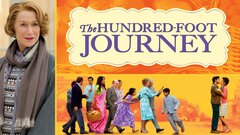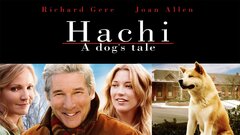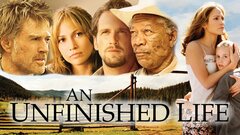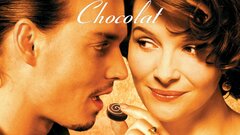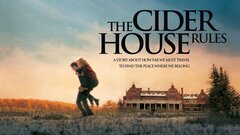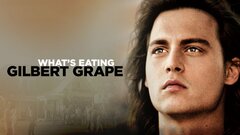A popular director of drama-tinged comedies, Lasse Hallström segued from Swedish television and directing virtually all of ABBA's music videos to forging a successful Hollywood career without abandoning his European sensibilities. Hallström emerged onto the international scene with "My Life as a Dog" (1985), which earned him a pair of Oscar nominations while opening the doors to American audiences. He made his U.S. debut with the family dramedy "Once Around" (1991) before hitting his stride with the critically acclaimed "What's Eating Gilbert Grape" (1993).
After "Something to Talk About" (1995), Hallström entered his most fruitful phase with beautifully crafted adaptations of "The Cider House Rules" (1999) and "Chocolat" (2000), both of which put him back into Academy Award contention. Following the appreciated, but little-seen, docudrama "The Hoax" (2007), Hallström finally had the box office hit he was waiting for with the adaptation of Nicholas Sparks' "Dear John" (2010). Having demonstrated an impressive flair for adapting material and drawing award-worthy performances from his actors, Hallström was noted for crafting emotionally wrought films that were deftly devoid of sentimentality.
Born on June 2, 1946 in Stockholm, Sweden, Hallström was raised by his dentist father and poet mother, Karin Lyberg, while descending from a political family that included a Swedish Minister of Finance, Carl Gustaf Ekman. When he was 10 years old, Hallström took his first steps toward becoming a filmmaker by directing the 10-minute, 8mm thriller "The Ghost Thief" (1956) and later, a three-minute documentary about Sweden's Gotland Island.
As a high school student, he made a documentary short about his friends' efforts to form a rock band that was subsequently broadcast on Swedish television in 1967, which led to him spending 10 years making short fillers for Swedish TV, usually writing, shooting and editing his own projects. He moved up the ladder to direct the program "Shall We Dance?" (1968) before training as a producer.
In the following decade, Hallström began directing music videos for Swedish supergroup, ABBA, starting with 1974's "Waterloo." Over the next eight years, Hallström directed most of the band's videos including "Mamma Mia" (1975), "SOS" (1975), "Fernando" (1976), "Dancing Queen" (1976) and "Take a Chance on Me" (1978).
Seguing away from television and music videos, Hallström made his feature directorial debut with "A Guy and a Gal" ("En Kille och en Tjej) (1975), a light romantic comedy that depicted a young couple's relationship. Returning to his documentary roots, he helmed the performance film, "ABBA: The Movie" (1977), and returned to narrative filmmaking with the Swedish titles "Jag Aer Med Barn" (1979), "Tuppen" (1981) and "Two Guys and a Gal" ("Tvaa Killar och en Tjej") (1983).
Hallström broke through internationally with the critically acclaimed film "My Life as a Dog" (1985), an irresistibly bittersweet comedy adapted from Reidar Jonsson's autobiographical novel about the misadventures of a 12-year-old (Anton Glanzelius) sent to live with relatives in rural 1950s Sweden. Upon its released in the United States in 1987, the film earned widespread awards recognition, winning a Golden Globe for Best Foreign Language Film while earning Hallström Academy Award nominations for Best Director and Best Adapted Screenplay.
Though he had broken through in Hollywood, he returned to Sweden to direct a pair of children's films, "The Children of Bullerby Village" ("Alla vi barn i Bullerby") (1986) and its sequel "More About the Children of Bullerby Village" ("Mer om oss barn i Bullerby") (1987), both of which were adapted from the works of Astrid Lindgren, author of the popular Pippi Longstocking books.
Hallström soon made his American feature debut as the writer-director of "Once Around" (1991), an uneven family dramedy set in Boston, MA that boasted an impressive ensemble including Holly Hunter, Richard Dreyfuss, Danny Aiello and Gena Rowlands. He fared better as the director of "What's Eating Gilbert Grape" (1993), a quirky, but unsentimental film about an unconventional American family that included a morbidly obese shut-in (Darlene Cates), a mentally handicapped 18-year-old boy (Leonardo DiCaprio), an awkward teen (Mary Kate Schellhardt) and the family breadwinner (Johnny Depp) who finally starts thinking for himself after meeting a beautiful young woman (Juliette Lewis) driving her grandmother across country.
Though not a box office hit, "What's Eating Gilbert Grape" was widely praised by critics. Hallström had better commercial luck with "Something to Talk About" (1995), a quasi-feminist comedy-drama starring Julia Roberts and Dennis Quaid. Despite an A-list cast and a script from "Thelma & Louise" scribe Callie Khouri, the film received mixed reviews while earning a descent payday at the box office.
After a four-year absence, during which a dream project to star his second wife Lena Olin collapsed, Hallström returned on surer ground with the touching adaptation of John Irving's novel "The Cider House Rules" (1999). Working from a screenplay by the author, he crafted an old-fashioned, visually beautiful drama about a parentless boy (Tobey Maguire) raised by an orphanage doctor (Michael Caine) who comes of age when given the chance to leave the only family he has ever known.
For his work on this film, Hallström saw his flagging Hollywood career rebound after receiving his second Oscar nomination for Best Director. He went on to direct another award-worthy film, "Chocolat" (2000), an adaptation of Joanne Harris' whimsical novel that managed to achieve the right balance of realism, magic and humor, all of which added up to an enchanting experience for audiences. Essentially a morality play with a message about tolerance, "Chocolat" examined how an itinerant candy maker (Juliette Binoche) and her conflict with the mayor (Alfred Molina) affected the lives of the residents of a small French village in the late 1950s.
The genial comedy bore the stamp of its director in its warmth and unabashed sentiment tempered by humor, and earned five Academy Award nominations including Best Picture.
Hallström followed with yet another film drawn from a best-selling novel, "The Shipping News" (2001), adapted from Anne Proulx's Pulitzer Prize winner about a down-and-out newspaper reporter (Kevin Spacey) who moves to his ancestral home in Newfoundland where he attempts to rebuild his life with his long-lost aunt (Judi Dench) and a local single mom (Julianne Moore). Despite a topnotch cast, the film was a creative misfire and failed to capture the spirit of the book that had entranced so many.
Hallström attempted to rebound with "An Unfinished Life" (2005), an emotionally driven tale centering around a grizzled and cantankerous rancher (Robert Redford) who must take in his estranged daughter-in-law (Jennifer Lopez), whom he blames for the death of his son, as well as the granddaughter he never knew he had after they flee an abusive relationship.
Though capably assembled and well-acted, critics generally found the film clichéd and overly sentimental. Hallström fared worse with his next film, "Casanova" (2005), a fictionalized account of the legendary Italian lothario (Heath Ledger) who at long last falls in love. "Casanova" was easily one of the most ill-conceived and disappointing films of the year, despite lavish production values and a strong performance from Ledger.
Hoping to rejuvenate himself once more, Hallström directed Richard Gere in "The Hoax" (2007), a comic docudrama about Clifford Irving, a struggling author who perpetuates the charade of being the handpicked autobiographer of reclusive billionaire Howard Hughes, only to find himself in increasingly precarious legal trouble.
Despite positive reviews, "The Hoax" failed at the box office. After reuniting with Gere on the little seen drama "Hachi: A Dog's Tale" (2009), Hallström hit a box office homerun with "Dear John" (2010), an adaptation of the Nicholas Sparks novel starring Channing Tatum a soldier who falls in love with a young woman (Amanda Seyfried) before going off to war.
He next directed the adaptation of "Salmon Fishing in the Yemen" (2011), which starred Ewan McGregor as a fisheries expert recruited by a sheikh (Amr Waked) to introduce fly fishing to his country. Once again, Hallström's film received positive critical reviews and did fairly well at the box office.
Returning to his native country, he helmed the crime drama "The Hypnotist" (2012), which became Sweden's official entry for Best Foreign Language Film at the Academy Awards.
By Shawn Dwyer
















